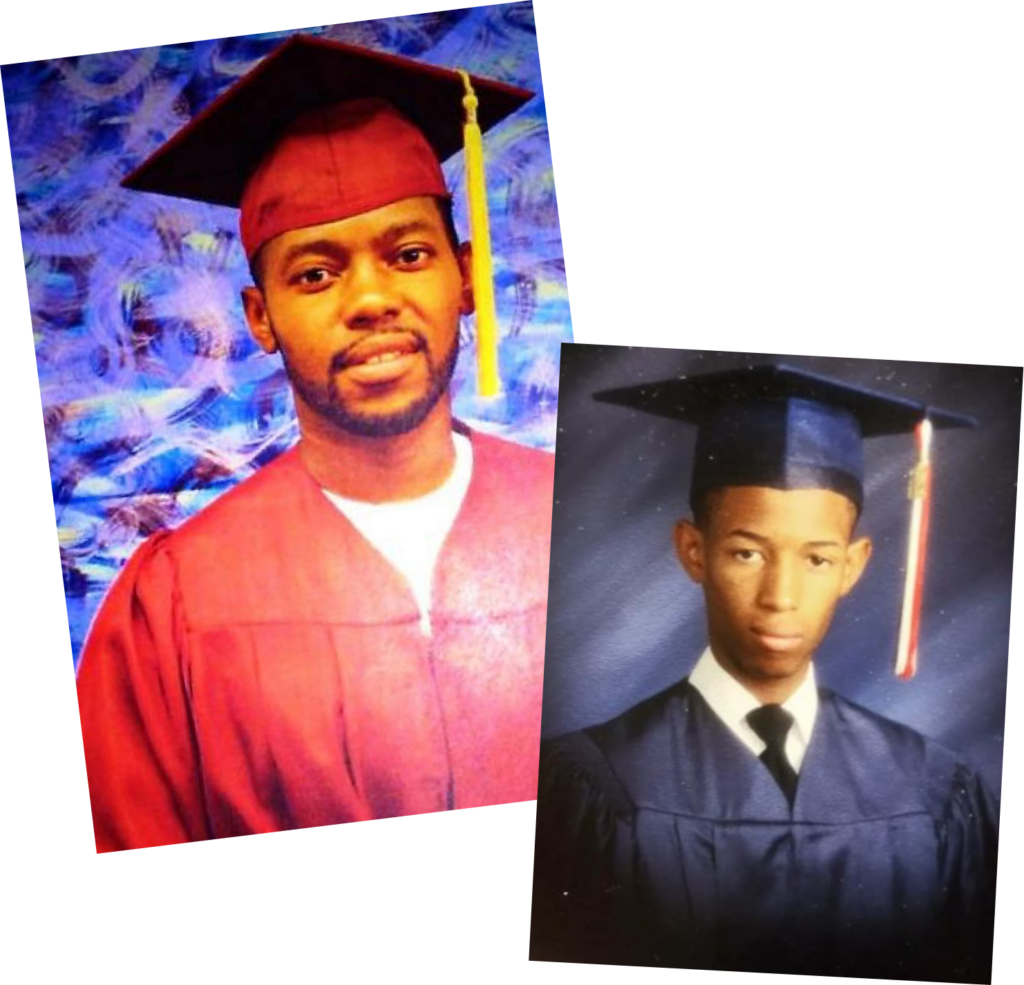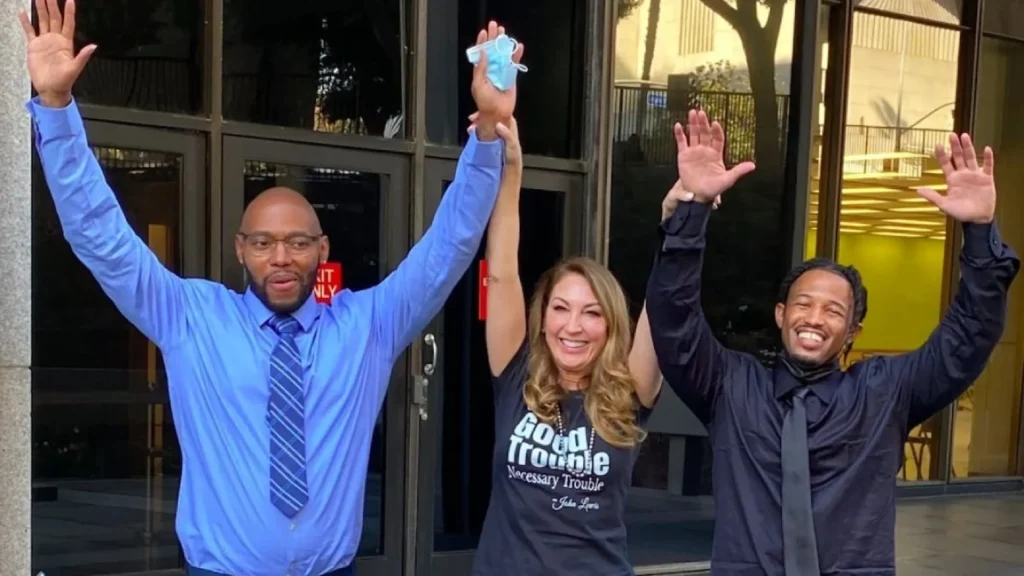Freed Client
In 2004, 18 year-old Juan Rayford, Jr., and 17 year-old Dupree Glass attended a party in Lancaster, California. During that party, Dupree argued with a friend, Perry. As a result of their argument, Dupree and Juan, accompanied by a group of boys, walked to Perry’s house to confront him.
However, Perry was not home. Perry’s aunt, Sheila, explained that Perry was unavailable and attempted to send them away. As the group argued about Perry’s whereabouts, a fight broke out between the boys who had arrived with Juan and Dupree. Amidst the scuffle, shots rang out, causing panic and forcing Sheila and her family to retreat into the house. Eight bullets struck the house, but no one was seriously injured. The only medical treatment required was Band-Aids for two individuals with scrapes.
Although the prosecution identified Fat Man (name unknown), one of the bystanders, as a shooter, they also relied on the conflicting testimony of Sheila and her teenage daughter, who accused Juan and Dupree of being the shooters.

At trial, the prosecutor successfully argued that Juan and Dupree attempted to kill every person in the house, without proof that they specifically intended to do so, because their alleged actions exposed every resident in the vicinity to harm. This legal theory has become known as the “kill zone theory” for the so-called “zone of fatal harm” that the defendant creates around supposed victims. Under the kill zone theory, this defendant would be charged with eleven counts of attempted murder if he tried to shoot one targeted person, and there were ten people within the vicinity who theoretically also could have been shot. That is exactly what happened in this case.
Using the kill zone theory, the prosecution charged Juan and Dupree with eleven counts of attempted murder each. There was no forensic evidence—no fingerprints, no video recordings, and no ballistics—that proved that Juan and Dupree were the shooters. The defense also failed to call any other witnesses who would have testified that Juan and Dupree were unarmed.
The jury convicted Juan and Dupree of eleven counts of attempted murder and one count of shooting at an inhabited dwelling. The trial court sentenced each teenager to eleven consecutive life sentences for the attempted murders, plus 220 years for gang and firearm enhancements (the California Court of Appeals set aside the enhancements in 2006). Based solely on false testimony and false allegations of gang involvement, the court sentenced Juan and Dupree to a life behind bars for a crime that neither of them committed, for an incident where no one was injured or killed.
In 2012, Juan and Dupree’s cases found their way to civil litigation attorney Annee Della Donna, who was convinced of their innocence after reviewing the evidence and case law. In 2014, she founded Innocence Rights of Orange County (“Innocence Rights”), a non-profit law group that advocates for the release of innocent prisoners. In partnership with the UC Irvine School of Law, Innocence Rights has represented Juan and Dupree in their appeals cases. Since then, UCI Law students have dedicated over a thousand pro bono hours toward securing release for their clients.
Juan and Dupree (with Innocence Rights) filed for writs of habeas corpus (a prisoner’s request to appear before a court to determine if his imprisonment is lawful), arguing that the jury was improperly instructed on the kill zone theory. After being denied by the Court of Appeal, Juan and Dupree appealed their case to the California Supreme Court, which ordered the Court of Appeal to reconsider Juan and Dupree’s petition for habeas corpus in light of the recent case People v. Canizales (2019), which limited and clarified the kill zone theory.
On June 16, 2020, after sixteen years of appeals, the court held that the evidence presented at trial was insufficient to apply the kill zone theory. Accordingly, the court reversed Juan and Dupree’s convictions of the eleven counts of attempted premeditated murder.


Although Juan and Dupree had been cleared of eleven attempted murder charges, a twelfth charge—shooting at an inhabited dwelling—still loomed over them. Attorneys Annee Della Donna and Eric Dubin worked with Juan and Dupree in order to reverse this last charge and finally vindicate the two men.
The Innocence OC team re-interviewed old witnesses, pored over seventeen years of appeals, and secured the testimony of a man professing to have been the true shooter. On April 20, 2023, in light of the newly uncovered evidence, Judge H. Clay Jacke II declared, once and for all, that Juan and Dupree were innocent of the crime for which they had been wrongfully convicted nearly two decades prior. The men, their families, and their attorneys celebrated outside the courthouse as this painful chapter came to a close.
Why we need to
In Canizales, the California Supreme Court acknowledged that “there is a substantial potential that the kill zone theory may be improperly applied.” Juan and Dupree’s case demonstrates the devastating consequences of the misapplication of an unclear law by prosecutors and judges. Because the prosecutor weaponized the kill zone theory to imprison these young men without any decisive evidence, Juan and Dupree have spent nearly half of their lives in prison.
Although the California Supreme Court has taken steps to limit the use of the kill zone theory, there are potentially hundreds of incarcerated people who have been excessively sentenced under now outdated versions of the kill zone theory. Additionally, the kill zone theory still exists in other states and has been used disproportionately against people of color. Justice will not be served until each kill zone defendant has had a fair review of their case, and states abolish the use of the kill zone theory.
COPYRIGHT © 2024 INNOCENCE OC – ALL RIGHTS RESERVED | Privacy Policy | Terms of Use | Innovated by HEROBrand
Innocence OC functions as a clinical program associated with UC Irvine School of Law. We are a 501(c)(3) non-profit organization. Donations to Innocence OC may become tax-deductible as per legal stipulations (EIN#: 92-2180939). It’s recommended to consult with your tax advisor regarding your individual tax situation.